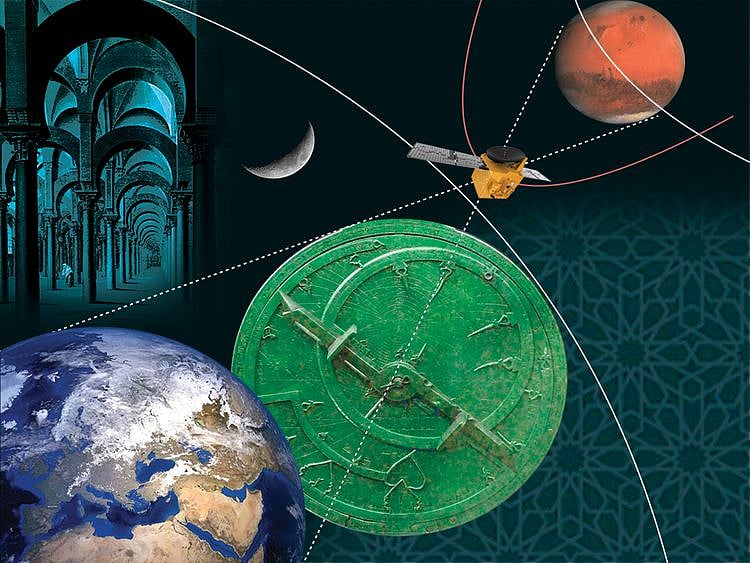The Arab nation for long had been a wounded nation, a defeated nation. Physically defeated and on the brink of a psychological defeat, perhaps for more than 500 years. The retreat of this once thriving and advanced nation began with the Arab defeat in Andalusia with the fall of the last Arab emirates, the city Grenada (Gharnata in Arabic) and its famous palace Al Hambra, on January 2 1492, at the hands of the Catholic monarchs, Queen Isabella I of Castile and King Ferdinand II of Aragon.
Andalusia was the height of the Arab renaissance. The advances in science, philosophy, arts and culture achieved by the Arabs are considered the basis for the Western renaissance and later the Industrial Revolution.
Two decades after the fall of Grenada, and around 1517, and while the Arabs were being expelled from Andalusia or forced to convert to Christianity, the Ottomans took over Arab lands in the Middle East. The Ottoman’s cruel rule in the Arab region, which lasted until the end of World War I in 1918, was one of the darkest eras in our history. The Ottomans made sure that the region remained benighted, uncultivated, and underdeveloped. The region represented from them just another source of revenue and a torrent of forced conscripts to fight their endless wars in Europe. Not a single school or hospital, or a factory for that matter, was built in the Arab region by the Ottomans.
Failure of civilian governments
The modern Arab states inherited a vastly illiterate people, who mostly worked as farmers or sailors. However, the situation didn’t get any better as those states were to remain under British and French occupation at least for the next two decades. As the wave of independence began in the early 1940s, another player came on stage — the military rule. Syria saw the first ever military coup in the Arab world in 1949, as a result of the utter failure of civilian governments of the time in the Palestine war in 1948. Most Arab states, except for the Gulf states, were now run by soldiers who were rarely interested in human development.
In his timeless manuscript, ‘Al Muqaddimah’, or The Introduction, the great Arab medieval intellectual Ibn Khaldun, says in one of his most quoted remarks: “Throughout history many nations have suffered a physical defeat, but that has never marked the end of a nation. But when a nation has become the victim of a psychological defeat, then that marks the end of a nation.”
For centuries, we have been a physically defeated nation. But not entirely defeated psychologically. The past four decades saw many efforts to bring back the nation from the brink of its seemingly infinite decline. Some of these projects faltered at later stages and some of them are still in progress.
Turning point
And then came the great ‘Hope’. The UAE’s Mars probe, which successfully entered the red planet’s orbit on Tuesday, could thus become a gamechanger in the civilisational struggle of the Arab nation. The UAE as a project, since its inception in 1972, is built on the principle of innovation. It is the first successful Arab unification in centuries. Its system of federalism is unique in the Arab world. its focus on human development, tolerance, multiculturism and economic and social empowerment has made it a destination for not only foreign economic investment but also for skills and talents from around the world.
The success of the project is highlighted by the building of the first Arab nuclear plant for peaceful energy, Al Baraka, the almost-total automation of services, the strength of its private sector, the rapidly decreasing dependence on oil revenues and last week’s successful Mars mission, the Hope Probe. The Mars mission however could very well propel a new line of thinking in the Arab world that we are capable of such things that were until last week assumed to be the acreage of developed nations such the US and European countries. What is mazing about the UAE space project is the fact that the team that made it possible is a 100 per cent Emirati — scientists, engineers, designers, technicians, and supervisors. Therefore, the country has the right to be proud of its brilliant minds who achieved what many countries would not dare even think of doing. They have worked hard since the project was an idea announced by His Highness Shaikh Mohammed Bin Rashid Al Maktoum, Vice-President and Prime Minister of the UAE and Ruler of Dubai, in 2015. “Arab civilisation once played a great role in contributing to human knowledge and will play that role again,” Shaikh Mohammad noted at the time.
Regaining past glory
He was referring to a long line of Arab scientists who were behind the Arab golden age before we became a defeated nation. A thousand years ago, Arab and Muslim scientists were world leaders in astronomy. Among them was Abdul Rahman Al Sufi (died 986) whose pioneering book described the 48 universal constellations, formed by what were then called the ‘fixed stars’ — the celestial objects that did not seem to move in relation to the other stars. He was followed in the science of stars by such leading astronomers as Al Biruni (died 1048), Ibn Al Haytham (died 1039) and many others. Following centuries of a civilisational slump and physical defeat, the Arabs finally stand a chance today to regain some of their past glory.
Back to Ibn Khaldun. He says: “He who finds a new path is a pathfinder, even if the trail has to be found again by others; and he who walks far ahead of his contemporaries is a leader.”
Today, the UAE is a pathfinder. A pioneer in a region struggling to find its proper place in the world.
Sign up for the Daily Briefing
Get the latest news and updates straight to your inbox
Network Links
GN StoreDownload our app
© Al Nisr Publishing LLC 2026. All rights reserved.
